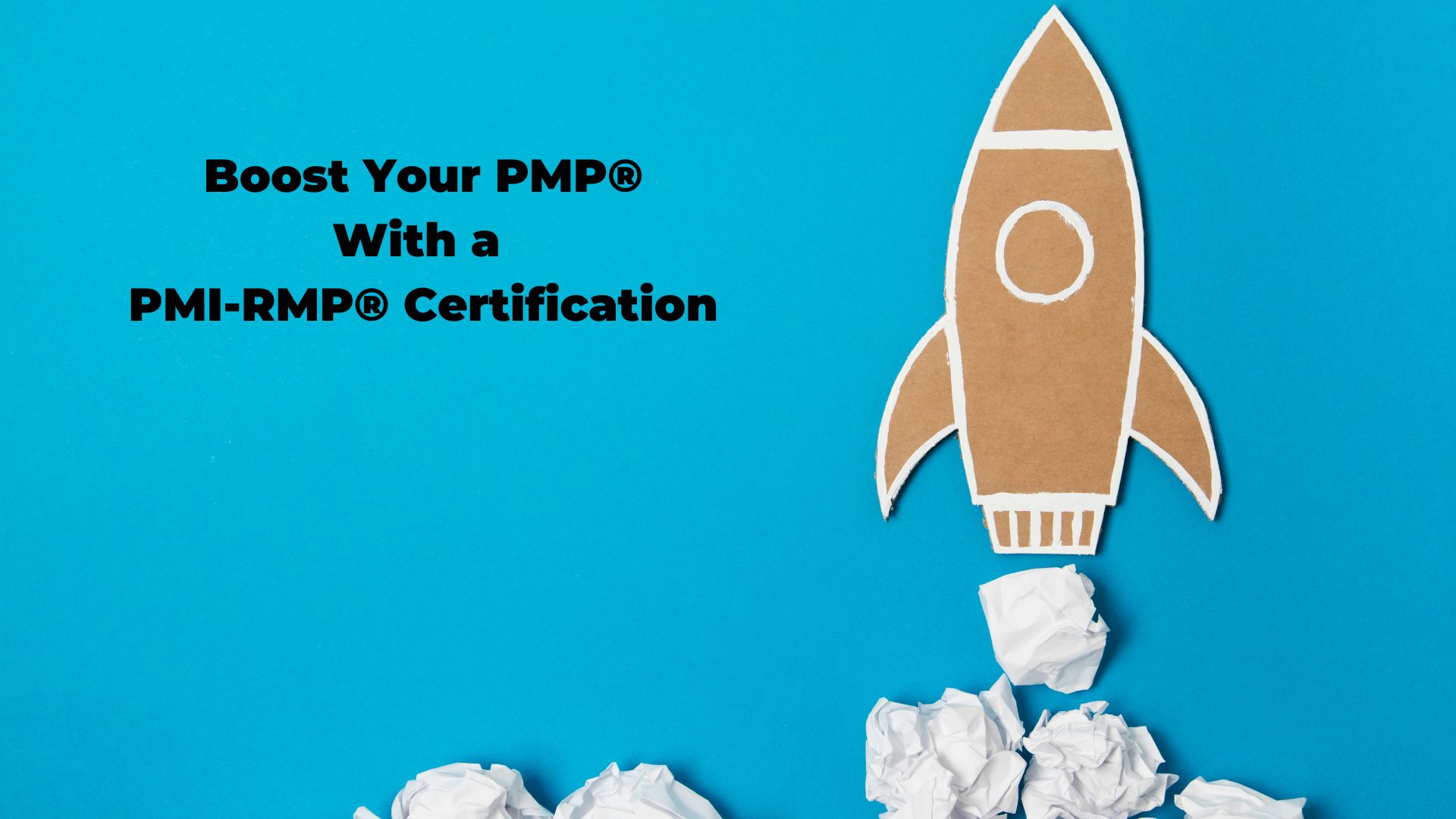LAST UPDATED JULY 29, 2023, BY HARRY HALL
Do you have your PMP® certification, but you're thinking about obtaining another Project Management Institute (PMI) certification? PMI offers eight certifications. Let's compare the Project Management Professional (PMP®) and the PMI Risk Management Professional (PMI-RMP®) certification.

What is the PMP® Certification?
The PMP® is a globally recognized Project Management Professional certification that gives proof of an individual's project management knowledge. If you are looking for a project management job, you will likely see the PMP® is a requirement or strongly preferred. CIO magazine ranked the PMP® as the top project management certification.
What is the PMI-RMP® Certification?
The PMI-RMP® is a globally recognized Project Risk Management Professional certification. Individuals possessing this certification have demonstrated their ability to identify, evaluate, and manage project risks.
The PMI-RMP® is an excellent complement to the PMP®. Why? All projects and programs have risks. The PMI-RMP® helps project managers manage risks and increase their performance. Furthermore, this certification sets project managers apart from other professionals as an actual risk manager. Here are five reasons to get your PMI-RMP® certification.
Must you have the PMP® before taking the PMI-RMP® exam?
No. However, having the PMP® can certainly be helpful. Why? Individuals with a PMP® have already studied the Project Management Body of Knowledge (PMBOK® Guide) including the Project Risk Management Knowledge Area. Additionally, these people have insights to preparing for the challenging Project Management Institute (PMI) exams.
The PMP® and PMI-RMP® Eligibility Requirements
Certification | Educational Background Four- Yr. Degree Experience (Months) | Education/ Contact Hrs. |
|---|---|---|
PMP® | 36 | 35 |
PMI-RMP® | 24 | 30 |
Notes:
If you are an active CAPM holder, you do NOT need to document the 35 contact hours for the PMP; the requirement is waived.
See the PMP® Exam Content Outline (January, 2021) and the PMI-RMP® Exam Content Outline & Specifications (January, 2023) for other Educational Backgrounds and related requirements.
The PMP® experience must be non-overlapping project management experience in leading and directing projects within the last five years. The PMI-RMP® experience must be in a specialized area of project risk management within the last five years.
The PMI-RMP® contact hours must be formal education in a specialized area of project risk management.
The PMP® and PMI-RMP® Exams
Certification | Number of Questions | Time (Minutes) |
|---|---|---|
PMP® | 180 | 230 |
PMI-RMP® | 115 | 150 |
PMP® Domains
Domains are high-level knowledge areas needed for the practice of project management. The Exam Content Outline specifies the domains that will appear on the exams.
Domain | Percentage of Items on Test |
|---|---|
I. People | 42% |
II. Process | 50% |
III. Business Environment | 8% |
Total | 100% |
These domains are effective January 2, 2021. See the PMP Exam Content Outline (January, 2021) for additional information.
PMI-RMP® Domains
Domain | Percentage of Items on Test |
|---|---|
Risk Strategy and Planning | 22% |
Risk Identification | 23% |
Risk Analysis | 23% |
Risk Response | 13% |
Monitor and Close Risks | 19% |
Total | 100% |
See the PMI-RMP® Exam Content Outline & Specifications (January, 2023) for additional information.
Boosting the Value of the PMP
Do you want to increase the value of your PMP? Become a risk management professional (PMI-RMP®). Risk management is a hot skill set. Organizations are looking for skilled risk managers to identify better and manage the project, program, and portfolio risks.
And since you already have your PMP, you understand the risk management processes. You have the foundation to make your journey to becoming a PMI-RMP easier.
Become a PMI Risk Management Professional
Have you been thinking about taking the PMI-RMP® exam? Are you looking for a course that is aligned with the latest PMI® Standards? I'm here to help with the PMI-RMP® Exam Prep Course. No fluff. Just simple, to-the-point instruction.
